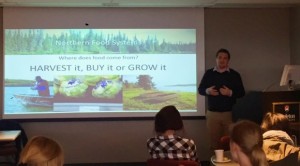The Laurier Centre for Community Research Learning and Action (CCRLA) in partnership with Laurier’s Social Innovation Venture Creation (SIVC)invites you to attend an exciting one day workshop on May 2nd in Kitchener to discuss Theories of Change inspired by six inspiring local and national thought leaders from non-profit, governmental and academic sectors. There will be two panels followed by interactive group discussions. Lunch and refreshments will be provided. A parallel event was held recently in Auckland, New Zealand, and an international exchange is planned (http://theoriesofchange.org/ ). Please help us spread the word about this event by sending this email to your networks.
The day’s speakers include:
Catherine Fife (MPP of Kitchener-Waterloo)
Catherine Fife is in her second term as MPP representing Kitchener-Waterloo. For the past decade, Catherine worked tirelessly on behalf of the families of Kitchener-Waterloo to help improve the quality and their access to education. She served as Trustee and Chair of the Waterloo Region District School Board, Vice President of the Canadian School Boards’ Association, and President of the Ontario Public School Boards’ Association. She met the challenge of these roles by successfully balancing a 675 million dollar budget for an organization serving 60,000 students and 5,500 staff. Through her leadership, an additional 1,600 new childcare spaces were created in the region at no additional cost to Waterloo Region taxpayers.
Joe Mancini, Co-Founder, The Working Center
Joe Mancini co-founded The Working Centre with Stephanie back in 1982. Using a radical model of hospitality and relationship building, The Working Centre has evolved into a village of integrated supports in multiple areas such as food, employment, health, outreach, bike repair, thrifts stores, housing, and social enterprise.
Jessica Bolduc, Executive Director, 4R Youth Movement
Jessica Bolduc, is an Anishinaabe-French young woman living in (Baawaating), Sault Ste. Marie, Batchewana First Nation territory. Jess is the Executive Director of the 4Rs Youth Movement where she is walking alongside young Indigenous and non-Indigenous change makers exploring critical conversations about reconciliation.
Dave Meslin (Toronto-based Artist, Community Choreographer)
Dave is a Toronto-based artist, community organizer, author and trainer. Using non-traditional methods and creative tactics, he spent twenty years as a social and political entrepreneur leaving a trail of non-profit start-ups, campaign victories, viral videos, new magazines, and public space interventions in his path. His thesis is simple: We’re stronger and smarter when we’re all involved. A recent Ted Talk by Dave on apathy can be viewed here: https://www.ted.com/speakers/dave_meslin .
Christiane Sadeler, Executive Director, Waterloo Region Crime Prevention Council
Christiane grew up in Germany and via a couple of other country stops made Canada her home in 1989 where she embarked on her most significant task of raising her son. A keen observer of human actions coupled with a deeply felt impatience about the same have drawn her to places where people share her passion for visioning a better tomorrow. And when our todays – as they do- get a little exhausting (if not exasperating) it is always nature that provides her with reprieve and reflection. All other things are just the pencils with which to colour within the above lines. But if you must know more check out www.preventingcrime.ca
James Orbinski, CIGI Research Chair in Global Health at the Balsillie School of International Affairs
Dr. Orbinski is a humanitarian practitioner and a leading scholar in global health. He believes in humanitarianism, in citizenship and in actively engaging and shaping the world in which we live, so that it is more humane, fair and just. As of September 2012, Dr. Orbinski is CIGI Research Chair in Global Health at the Balsillie School of International Affairs, and professor of International Policy and Governance at Wilfrid Laurier University. At the University of Toronto, which he joined in 2003, he is full professor of Medicine at the Dalla Lana School of Public Health, and Senior Fellow at both Massey College, and the Munk School of Global Affairs. He has extensive field experience with Médecins Sans Frontières (MSF), having worked as a medical doctor in Peru (91) and Brazil (92), and as MSF’s medical co-coordinator in Baidoa Somalia during the 92-93 civil war and famine, and in Jalalabad, Afghanistan in 1993-94 during the civil war. He led MSF’s mission in Kigali, Rwanda during the 1994 genocide and civil war, and in Goma, Zaire during the 1996-97 civil war and refugee crisis. After completing a Masters Degree in International Relations, he was elected international president of MSF from 1998 to 2001. During this time, he launched MSF’s Access to Essential Medicines Campaign (1998) and accepted the Nobel Peace Prize awarded to MSF in 1999. In 2004, Dr. Orbinski co-founded Dignitas International, which is now supporting over 200,000 people with full treatment for HIV, and is scaling up its Primary Health Care treatment model to serve a population of 3 million in Malawi. Dignitas also has established an extensive research capacity, with over forty major publications focused on improving health systems in the developing world.
When: Monday, 2 May 2016 from 9:00 AM to 4:00 PM (EDT)
Where: 120 Duke St W-Room 101 – 120 Duke Street West Kitchener, ON N2H 6P6 CA
For more information…….

